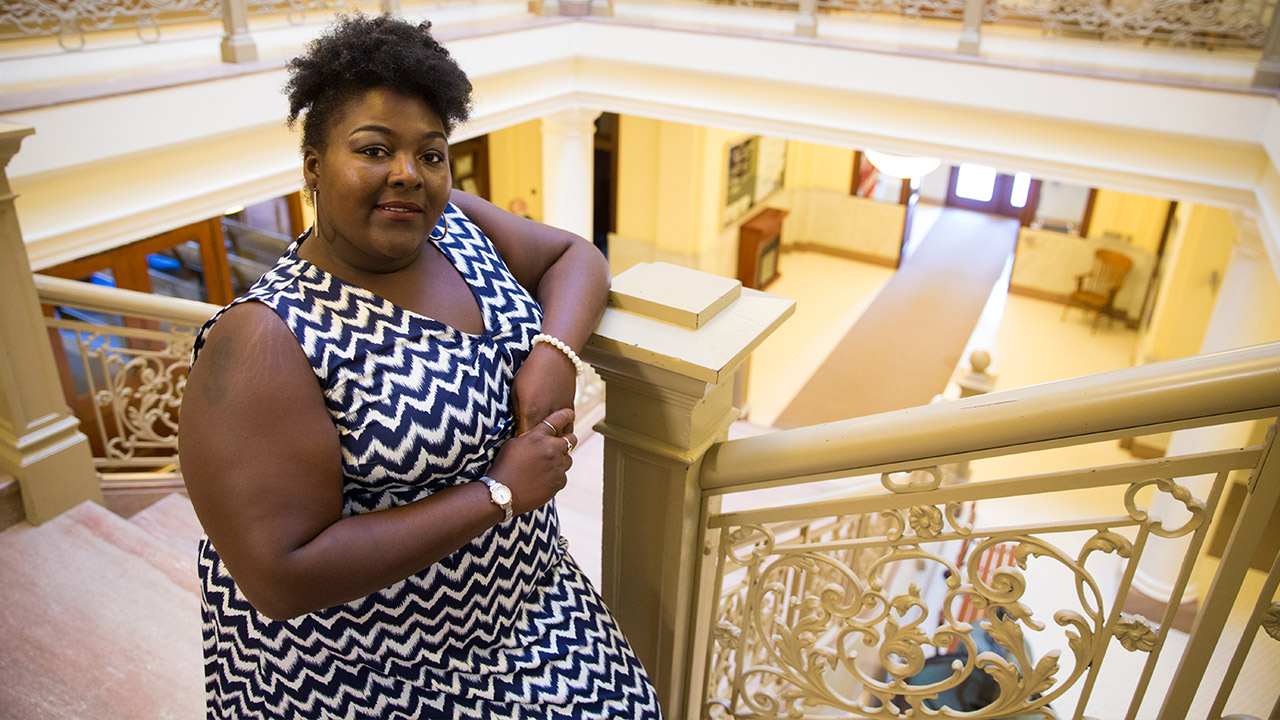
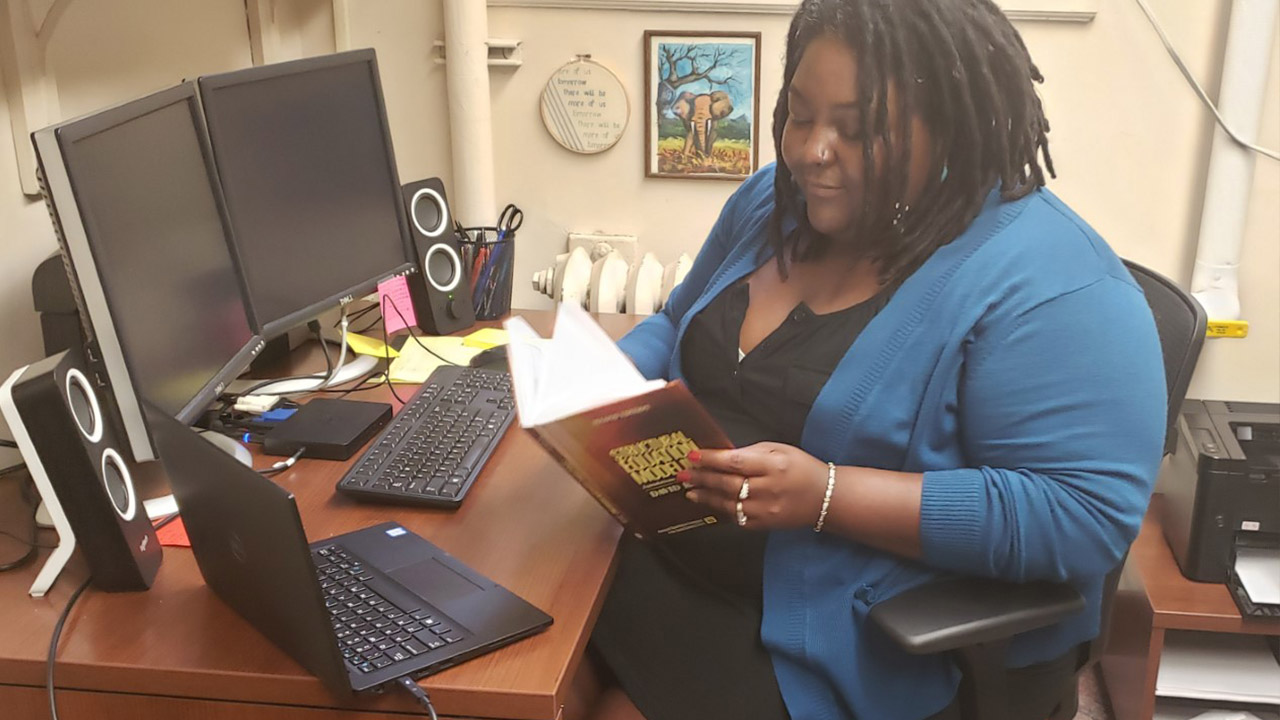
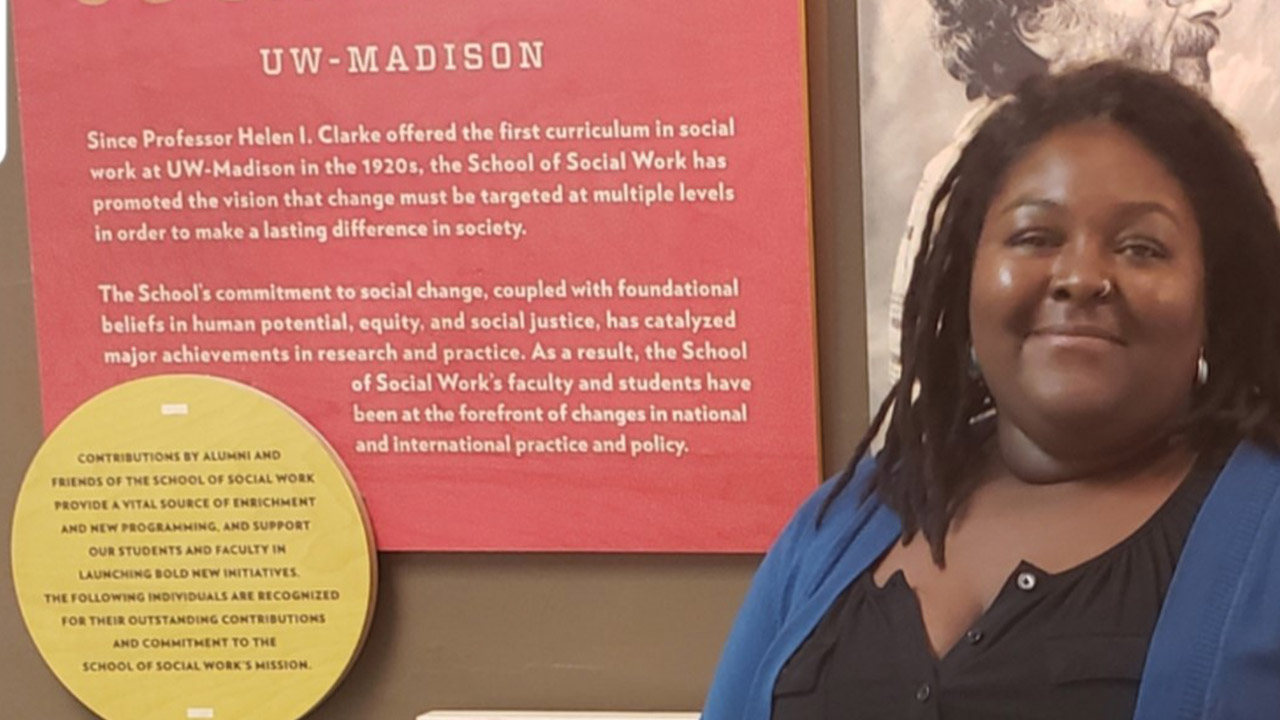
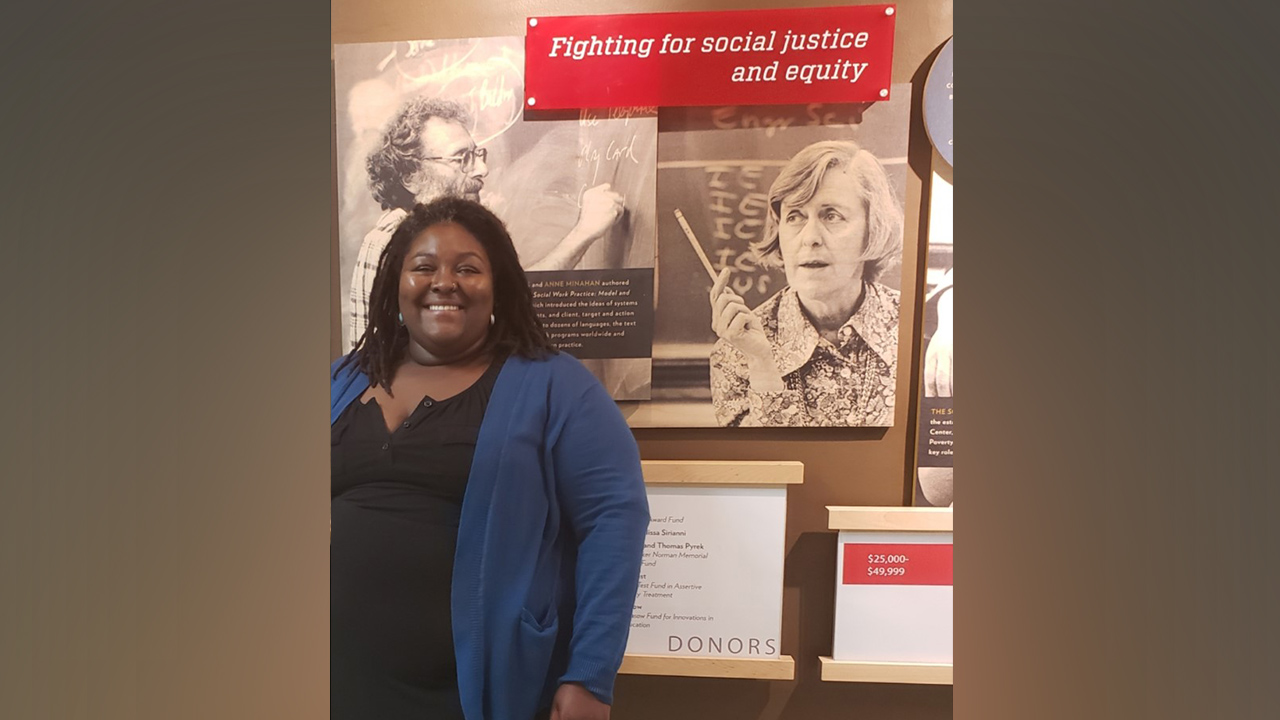
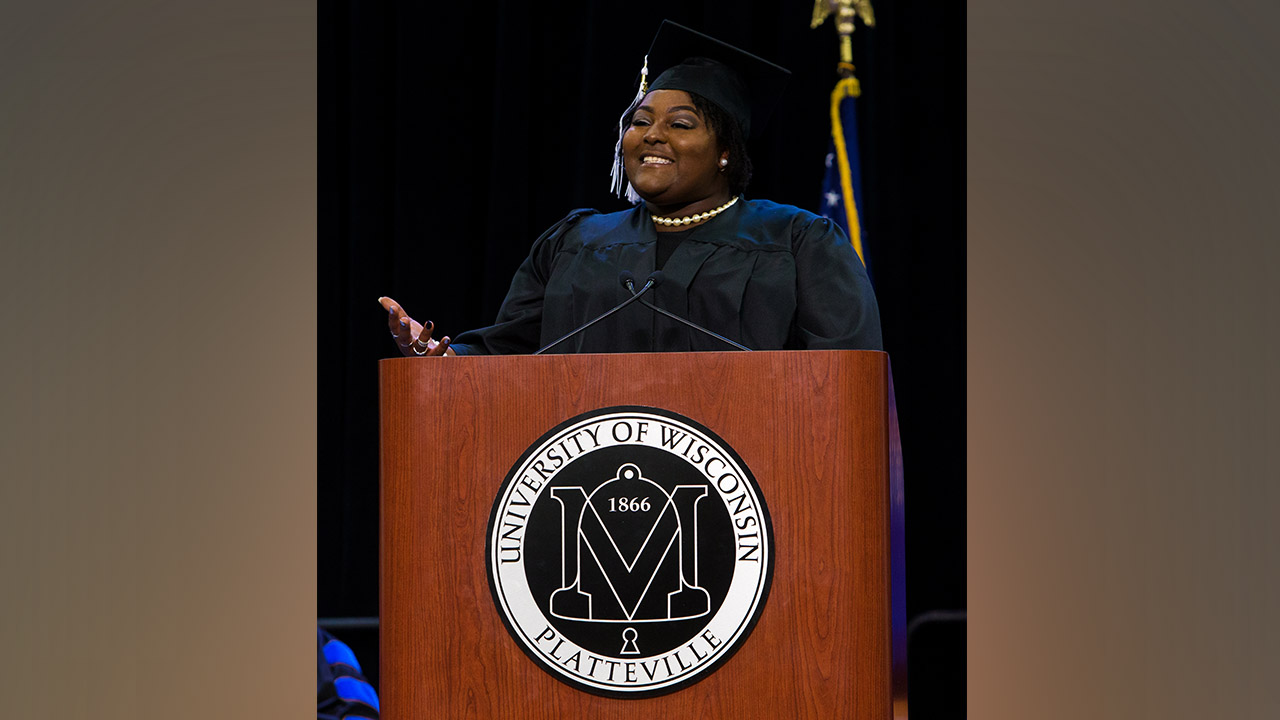
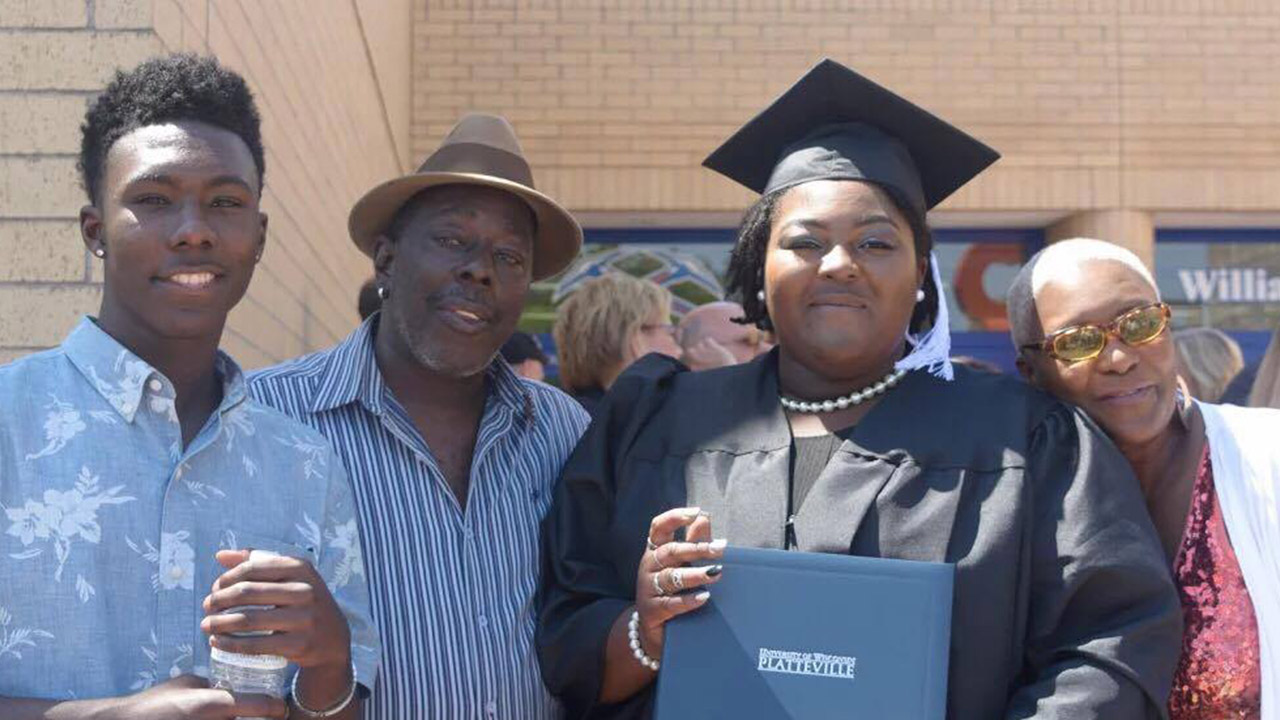
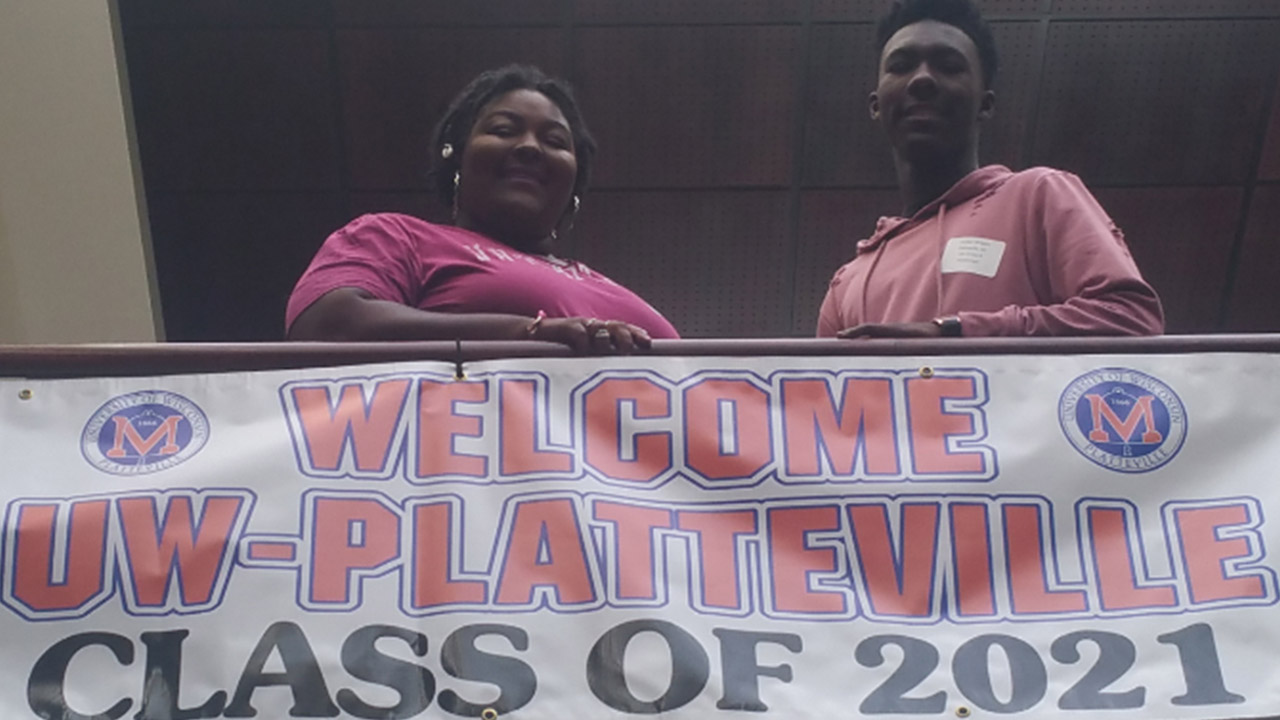
When University of Wisconsin-Platteville alumna Sakara Wages walked across the stage and accepted her diploma at the university’s graduation ceremony in May 2017, she felt pride in her accomplishments and excitement for the future.
After four years of rigorous coursework, research and hands-on learning experiences in general studies, psychology and political science at UW-Platteville, the Chicago, Illinois native and graduate of Gwendolyn Brooks College Preparatory Academy in Chicago attained one of her primary educational goals: to earn a Bachelor of Science in psychology and a minor in political science.
That day, as the student speaker of the College of Liberal Arts and Education’s graduation ceremony, Wages also inspired her fellow graduates and other audience members with a speech that focused on how UW-Platteville provides diverse opportunities that prepare graduates to capitalize on any once-in-a-lifetime opportunities that may cross their paths.
Wages, now living in Fitchburg, Wisconsin, is already well on her way to completing the next phase of her academic journey – she is concurrently working toward the completion of a Master of Social Work (Sept. 2017-May 2020) and a Ph.D. in social welfare (Sept. 2017-May 2022) at UW-Madison.
Over the next two semesters, she has three important goals: to complete her coursework, to assist with the expansion of the Madison Association of Black Social Workers and to roll out a scholarship program for black women entering any program offered by the School of Social Work at UW-Madison.
These are the first steps in reaching her ultimate goal: to support, empower and center the voices of black women in social work education and research.
Scholarship program for black women
Wages’ scholarship program, “Subversive Scholarship,” will be implemented through an organization she created, Subversive Social Work. The program will have two components.
The first component is a $500 award, designed with black women in mind. She has given much thought into the timing and delivery of the monetary award.
“Funds will be directly gifted to the recipient in cash to subvert the rigamarole of tedious financial aid processes that might prevent poor students from receiving meritorious awards,” she said. “The timing of the delivery of funds also matters. Unlike other scholarships, this award is to be granted early in the summer to ease the transition into the next academic step. All too often, students are expected to have the resources required to relocate for school; unfortunately, that may not be the case for all students.”
The second component is mentorship aimed at assisting black, female social workers in engaging with the hidden social curriculum required to advocate for themselves and their communities.
“All too often, black women are placed in leadership positions and left vulnerable to heteropatriarchal systems,” she said. “I intend to assist black women to sharpen the skills required to strategically voice their needs while protecting themselves in the face of power. With the guidance of the illustrious Seungmi Cho (nee Laura Klunder), I have designed a curriculum that includes these tactics, as well as an introduction to postcolonialism, black feminism and critical theories.”
Wages said the scholarship and mentorship programs are the products of knowledge gleaned from opportunities made possible by benefactors Dr. Dorothy Pearson and Sheldon Rose. “Through this scholarship, I hope to continue their legacy by paying it forward,” she said.
Education at UW-Platteville
Wages credits her education at UW-Platteville as being instrumental in preparing her for graduate school and her future career.
“Very early on, I expressed a love for research, and UW-Platteville and my amazing advisor, Dr. Elizabeth Gates, crafted opportunities to meaningfully engage in the research process,” said Wages. “For example, through a mandatory research course and project, I obtained Institutional Review Board approval during my undergrad – a rare achievement among my graduate cohort.”
Wages said another example was her independent undergraduate research project. “Dr. Gates had the foresight to connect me to Dr. Julie Hill,” she said. “That connection led to a project that was accepted into the 2016 Psi Chi Conference and won a travel award. All of these experiences helped prepare me for graduate school at a Research I institution.”
“The first time I met Sakara, I instantly knew she had enormous potential,” said Gates, chair of the Department of Psychology at UW-Platteville. “She has an inherent love of knowledge, learning and research, which is why I encouraged her to pursue her doctoral degree in social welfare.”
When asked what she loved most about her education at UW-Platteville, Wages said, “Everything. The small classes, the welcoming spaces, the community. There is a relational aspect of education that I find necessary, and I had that at UW-Platteville. My professors were down to earth, thoughtful and genuine. They also took the time to get to know me, which felt amazing. My professors really cared and when I struggled, they went above and beyond to see to my success.”
“UW-Platteville is the perfect size,” she added. “It is small enough, such that logistics are not too burdensome. I often walked to class, and if I had to park it was super affordable. Yet, it is also large enough to have super fun activities. I attended the drag show and many concerts, plays and comedy shows. It’s hard enough to be a college student; having everything so accessible removed a huge hurdle.”
Wages is not the only member of her family to attend UW-Platteville. Her brother Jordan, currently a junior psychology major with a minor in criminal justice at UW-Platteville, is expected to graduate in May 2021.
Hands-on learning, making a difference
Recognizing the value of the knowledge, skills and experience she gained through hands-on learning opportunities at UW-Platteville, Wages pursued similar experiences at UW-Madison. These new experiences have enabled her to have a direct impact on state and local initiatives that seek to improve the lives of vulnerable and marginalized populations.
At different times during her graduate education, Wages participated in an internship at the Institute for Research on Poverty at UW-Madison, a non-partisan research institution dedicated to producing and disseminating rigorous evidence to inform policies and programs to combat poverty, inequality and their effects in the United States. As an intern, Wages conducted general research to inform policymakers and participated in The Alliance of the American Dream and, thus, the DreamUP project.
“DreamUP is a challenge that brought community, business, government and non-profit networks together, in partnership with UW-Madison, to expand economic security and shared prosperity in Dane County, Wisconsin,” she explained. “The challenge is a call for proposals to raise net income by 10% for 10,000 middle-class families in Dane County. My work included preliminary interviews to assess the needs of communities throughout Dane County.”
Wages is also a member of the research team of Dr. Kristen Shook Slack, professor and doctoral program chair of the School of Social Work at UW-Madison, and Dr. Lawrence Berger, Vilas Distinguished Achievement Professor at the School of Social Work and former Director of the Institute for Research on Poverty at UW-Madison. In this position, she responds to requests for information from various state agencies to inform policy and assists with the coding and analysis of data.
“Sakara hit the ground running in our Ph.D. program, bringing her intellectual curiosity and drive, as well as her passion, for improving the profession of social work and for influencing social welfare policy and practice through her research activities,” said Slack. “She will make an excellent scholar and teacher going forward in her career because she truly wants to make a difference and make things better for marginalized and oppressed populations, as well as for future students who follow in her footsteps.”
Wages is working with Slack on two papers. The first, alongside Slack and doctoral student Hana Lee, is an attempt to determine whether families with chronic neglect differ from families with a single episode of neglect. The second project, also with Slack and Dr. Reiko Boyd, assistant professor in the Graduate College of Social Work at the University of Houston, draws from Robert Hill’s 1993 framework to determine if the strengths of black families influence parenting and reduce future Child Protective Services involvement.
Wages also had an internship with Dane County Human Services Independent Living Unit, in its South Madison office. Her primary responsibilities were to work with youth 15-21 years of age who were due to age out of foster care.
“This position gave me first-hand experience working with emerging adults and will inform my future work with adults aging from foster care,” she said.
Awards
As an undergraduate student at UW-Platteville, Wages always strived for excellence. As a graduate student at UW-Madison, she has done the same.
Wages is the 2018 recipient of the Dorothy M. Pearson Graduate Fellowship, which was established to support African-American Ph.D. students to use their knowledge and experiences from a doctoral program to create novel solutions to societal problems.
She is also the 2019 recipient of the Sheldon D. Rose Memorial Scholarship. She was chosen to receive the award for her part in designing a mentoring program in response to the City of Madison, meant to address youth who reside on the city’s west side.
“The mentoring program draws from a body of prior research that suggests that supporting the racial identity development of late adolescents and emerging adults is vital to improving adult functioning,” she said.
When asked what inspires her each day, Wages said, “I am constantly inspired by black women who engage in social work. They may not consider themselves social workers, but they absolutely think about and work toward the eradication of disparities. Women like Seungmi Cho, Sabrina Madison, Sagashus Levingston and Brandi Grayson push me to keep moving forward.”